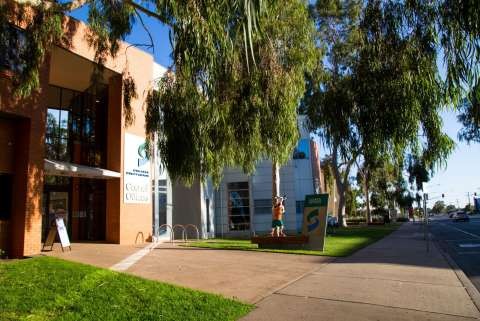Chi-square tests of independence between each survey variable with willingness to use municipal recycled wastewater (MRW) on food crops, based on 268 responses to the Greenhouse Grower survey
Storrs, CT There is a growing need for water conservation, particularly in agriculture, where increased demand for irrigation, coupled with climate change, threatens global water supplies. In the United States, agricultural production is responsible for 80% of annual water use. Agricultural producers-including greenhouse growers-have expressed concern about water availability and although access to safe alternative water sources, such as recycled water, has increased, their widespread adoption has not occurred. In this study, the authors aimed to understand what motivates greenhouse growers to adopt and use municipal recycled wastewater (MRW) in their greenhouse operations and what barriers prevent it.
Our research sought to better understand diversity among growers and how it is reflected in what motivates and limits growers’ MRW use. In this article, we draw from survey data we collected from 2019 to 2020 on growers’ knowledge, perceptions, and willingness to use MRW. We use a logistic regression model to explore the effect of several factors-including concerns over water quality, trust in regulatory institutions, consumer trust, knowledge and experience, capital and monetary incentives, and environmental concerns-on growers’ willingness to use MRW. Our results help shed light on the factors that seem to influence a growers’ willingness to use MRW and how they may inform approaches to outreach and education, including tailoring such approaches to different informational needs and motivations of growers. The analysis of this study indicated that water quality and knowledge of, or experience with, MRW were central to explaining willingness to use MRW.
Given these findings, improving adoption of MRW requires collective experiential learning opportunities that gather target audiences with educators, policymakers, end users, and local authorities to simultaneously provide hands-on experience tailored to growers’ particular knowledge and concerns with feedback from peers.
Grower education is seen as a critical pathway toward improving acceptance of MRW within greenhouse operations. However, education alone may be insufficient as entrenched concerns and perceptions about MRW quality may be difficult to shake. Thus, improving MRW uptake requires both education and opportunities for direct or indirect experiential learning and for building trust through a process of deep engagement.
Although our results support understanding of grower heterogeneity, further research is needed to provide a deeper understanding of those grower differences, including the ways that gender, age, race, and geography may affect growers’ information needs, attitudes, and approaches regarding MRW. More research is also needed to deepen understanding of how a greenhouse growers’ customer base (e.g., retail, wholesale distributors, restaurants, farmer’s markets) affects growers’ willingness to use MRW. Similarly, research is needed to gain a better understanding of the concerns and attitudes toward MRW of different types of customers and how to manage those concerns to improve customers’ acceptance of using MRW on food crops. Such research could provide growers with insights, information, and strategies to alleviate those customer concerns paving the way for increased MRW adoption among growers.
Finally, research on the effectiveness of different types of information and modes of delivery are also critical to understanding how to tailor and deliver information about recycled water more effectively to diverse grower communities.
The full article can be found on the HortTech electronic website at: https://doi.org/10.21273/HORTTECH05132-22
Established in 1903, the American Society for Horticultural Science is recognized around the world as one of the most respected and influential professional societies for horticultural scientists. ASHS is committed to promoting and encouraging national and international interest in scientific research and education in all branches of horticulture.
Comprised of thousands of members worldwide, ASHS represents a broad cross-section of the horticultural community-scientists, educators, students, landscape and turf managers, government, extension agents and industry professionals. ASHS members focus on practices and problems in horticulture: breeding, propagation, production and management, harvesting, handling and storage, processing, marketing and use of horticultural plants and products. To learn more, visit ashs.org.







